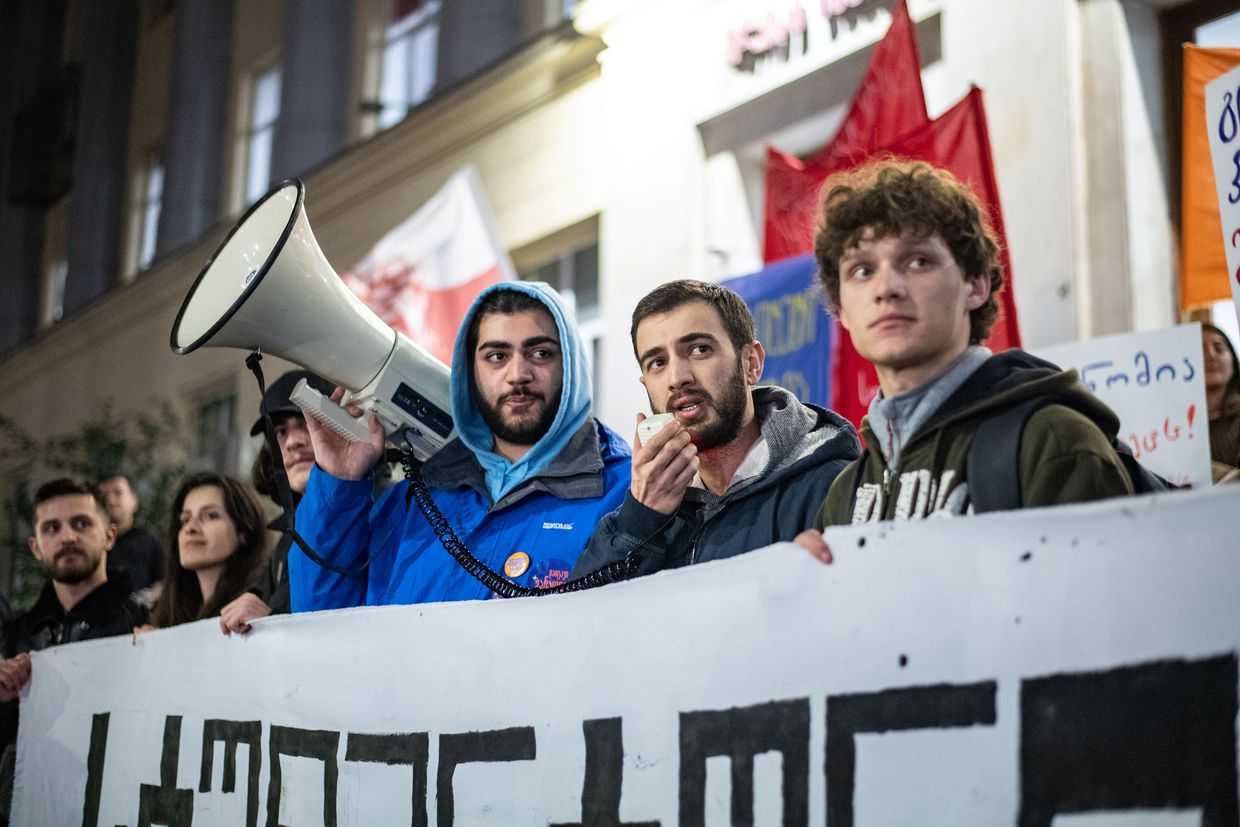
The EU has suspended €30 million ($32 million) in military aid allocated to Georgia as part of its response to the Georgian government’s passage of the foreign agent law and subsequent crackdown on human rights.
EU Ambassador Paweł Herczyński stated on Tuesday that the EU had frozen support for Georgia from the European Peace Facility, an EU mechanism that has provided billions in military aid to Ukraine, Moldova, Georgia, and others since its inception in 2021. The move also comes amidst reports that neighbouring Armenia will be granted non-lethal military support from the facility for the first time.
Herczyński said that direct financial aid from the EU to the Georgian Government would from now on be limited, and that the bloc planned to redirect support to local civil society and media.
‘Other measures are being considered if the situation further deteriorates’, he said.
The announcement came days after the US Defence Department announced it was ‘indefinitely postponing’ its annual Noble Partner joint military exercises with Georgia, as part of a ‘comprehensive review of the United States–Georgia bilateral relationship’.
They cited the Georgian government’s ‘false accusations against the United States and Other Western entities’.
[Read more: US ‘indefinitely postpones’ annual joint military drills with Georgia]
Georgian President Salome Zourabichvili blamed the government for the suspension of EU military aid and the cancellation of the joint drills with the US.
‘This is a response to the anti-European and anti-Western rhetoric and actions of this government’, she said. ‘A response to the fact that all their advice and warnings remained unanswered’.
‘These very grave messages from our two closest friends are worth paying attention to!’
She also appealed to the public to oust Georgian Dream in October’s parliamentary elections.
‘Although this is a response to the ruling party’s foolish and hostile policy towards [the West], at the same time, it is a warning to the public.’
‘Our partners tell us that “the choice is yours”. Between Georgia with a secure European future — or moving to an isolated Russian orbit’.
Georgian Dream MP Beka Davituliani hit out at the EU following their announcement, stating that they were harming not just the Georgian government, but their own interests, as ‘Georgia is an important point on the geopolitical map’.
‘For the last few years, Georgia has been trying to simultaneously protect its own interests and continue to advance in the direction of the European Union, in general, in the direction of Western institutions’, he said.
‘Unfortunately, some are trying to prevent this from happening and to reflect Georgia’s protection of its interests directly proportionally to hindering the deepening of relations with Western institutions.’
‘We have our own way’, he said.
He said it was unfortunate the EU was redirecting funding to civil society and the media over the adoption of the foreign agent law, but that this could not change their decision to adopt the law.
‘Georgia’s EU accession process is stopped for now’
Speaking to journalists on Tuesday Herczyński also reiterated that Georgia’s integration into the European Union had been halted. He said this had been decided by the leaders of EU member states during the European Council summit in Brussels on 27 June.
‘It is sad to see EU–Georgia relations at such a low point, when they could have been at an all-time high’, he said.
Herczyński added that the Georgian Government’s intentions were unclear to EU leaders, and that their adoption of the foreign agent law and the government’s anti-Western and anti-European rhetoric was incompatible with the goals of joining the EU.
He said that if whoever formed the next government following October’s parliamentary elections was not interested in EU membership, the bloc would be prepared to continue cooperation with Georgia as a third country, citing relations with Tunisia, Azerbaijan and Kazakhstan as examples.
The ambassador added that Georgians should decide what kind of future they wanted for the country during the elections scheduled for 26 October.
Following the ambassador’s comments, the first vice-speaker of Parliament, Gia Volski, appeared to downplay the severity of his government’s rift with the EU and US.
‘Perhaps there are some misunderstandings [with EU], different positions regarding principle issues such as the demand for transparency’, he told journalists, claiming that ‘there are practically no other topics of tension’.
Tina Bokuchava, the newly appointed chair of the opposition United National Movenment, stated that as soon as the government changed, the opposition would not only restore funding from Georgia’s Western partners, but also open accession negotiations with the EU.









